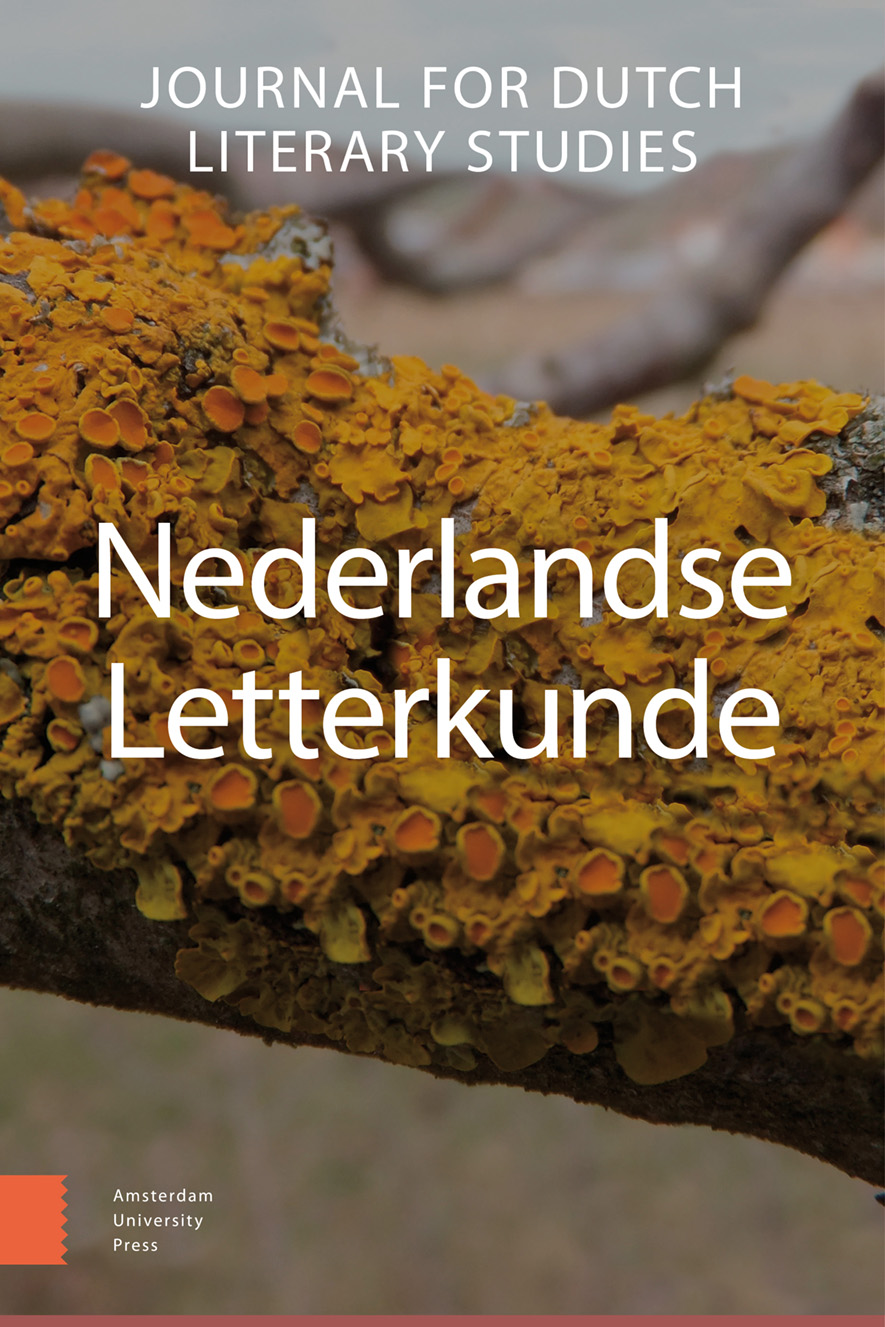- Home
- A-Z Publications
- Nederlandse Letterkunde
- Previous Issues
- Volume 17, Issue 3, 2012
Nederlandse Letterkunde - Volume 17, Issue 3, 2012
Volume 17, Issue 3, 2012
Language:
English
-
-
Het gelijk van de schrijver - Willem Frederik Hermans’ fictieve discussie met Jean-Paul Sartre
More LessIn discussions on the social impact of literature, literary commitment is often opposed to literary autonomy. Within the field of Dutch literature, Willem Frederik Hermans is generally understood as one of the most important representatives and supporters of literary autonomy. Jean-Paul Sartre, on the other hand, is generally considered as one of the world’s most famous representatives and supporters of committed liter Read More
-
-
-
Hoe telbaar is stijl? - Een kwantitatieve analyse van observatie en participatie in de stijl van Arnon Grunberg
More LessAuthors: Suzanne Fagel, Ninke Stukker & Loes van AndelDigital humanities’ is a discipline on the rise. But there still are a lot of prejudices to battle concerning the use of quantitative methods in literary analysis. This article presents an example of the way quantitative data can be used in a stylistic analysis. Our case study is the novel De asielzoeker by Arnon Grunberg. We relate Grunberg’s poetical standpoints on the nature and function of literature to his style of writing. Our article Read More
-
-
-
Eten! Lezen! Reizen! - Traditie, toerisme en lifestyle bij Bart van Loo en Geerten Meijsing
More LessBy Ben De BruynThis article analyzes the literary non-fiction of Bart van Loo, especially his trilogy of books devoted to French literature and culture, De Frankrijktrilogie (2011). Developing Jim Collins’s penetrating account of ‘popular literary culture’ and of the ways in which literary classics are nowadays converted into entertaining ‘good reads’, the article argues that the literary tradition currently functions as a guide to the ‘go Read More
-
-
-
Identiteiten van adolescenten in de vroegmoderne liedcultuur: het studentenlied als casus
More LessBy Els StronksSongs aimed at the Dutch youth became a booming business in the Dutch Republic. In contemporary Western culture, such popular songs constitute an important vehicle for expressing youth identities. With regard to the Low Countries, it is this article’s hypothesis that in the booming business of songs composed by and for youngsters – loosely defined here as ‘unmarried young people’ – early stages of these modern p Read More
-
Volumes & issues
Most Read This Month
Article
content/journals/13845829
Journal
10
5
false
en


